Related Research Articles

The Australian Democrats is a centrist political party in Australia. Founded in 1977 from a merger of the Australia Party and the New Liberal Movement, both of which were descended from Liberal Party dissenting splinter groups, it was Australia's largest minor party from its formation in 1977 through to 2004 and frequently held the balance of power in the Senate during that time.

Natasha Jessica Stott Despoja AO is an Australian diplomat, advocate, author, and former politician. Starting her career in student politics, she became an advisor to the Australian Democrats and was appointed to the Australian Senate in 1995 at the age of 26. At the time, she was the youngest woman to serve in federal Parliament. She went on to become deputy leader of the Democrats in 1997 and then federal leader from 2001 to 2002. She retired from the Senate in 2008 as the longest-serving senator from her party.

Andrew John Julian Bartlett is an Australian politician, social worker, academic, and social campaigner who served as a Senator for Queensland from 1997 to 2008 and from 2017 to 2018. He represented the Australian Democrats in his first stint in the Senate, including as party leader from 2002 to 2004 and deputy leader from 2004 to 2008. In November 2017, he returned to the Senate as a member of the Australian Greens, replacing Larissa Waters after her disqualification during the parliamentary eligibility crisis. He resigned from the Senate in August 2018 in an unsuccessful attempt to win the House of Representatives seat of Brisbane, allowing Waters to fill his seat in advance of the 2019 election.
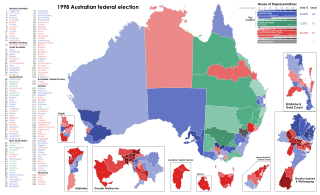
The 1998 Australian federal election was held to determine the members of the 39th Parliament of Australia. It was held on 3 October 1998. All 148 seats of the House of Representatives and 40 seats of the 76-seat Senate were up for election. The incumbent centre-right Liberal/National Coalition government led by Prime Minister John Howard of the Liberal Party and coalition partner Tim Fischer of the National Party defeated the centre-left Australian Labor Party opposition led by Opposition Leader Kim Beazley, despite losing the nationwide popular and two-party preferred vote. However, the Australian Labor Party gained seats from the previous election.
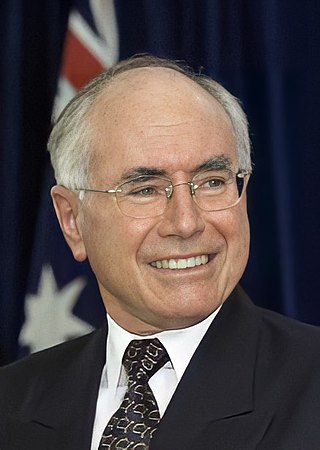
The 2004 Australian federal election was held in Australia on 9 October 2004. All 150 seats in the House of Representatives and 40 seats in the 76-member Senate were up for election. The incumbent Liberal Party of Australia led by Prime Minister of Australia John Howard and coalition partner the National Party of Australia led by John Anderson defeated the opposition Australian Labor Party led by Mark Latham.
Aden Derek Ridgeway is an Australian former politician. He was a member of the Australian Senate for New South Wales from 1999 to 2005, representing the Australian Democrats. During his term he was the only Aboriginal member of the Australian Parliament. He is currently a spokesperson for Recognise, the movement to recognise Aboriginal and Torres Strait peoples in the Australian Constitution.

The Australian Progressive Alliance (APA) was a minor "small-l-liberal" party in Australia, formed by Meg Lees, an independent senator and former leader of the Australian Democrats, in April 2003. The party ceased to operate and was deregistered in June 2005 following Senator Lees's defeat at the 2004 election and the expiry of her term.
Meg Heather Lees is a former member of the Australian Senate from 1990 to 2005, representing the state of South Australia. She represented the Australian Democrats from 1990 to 2002, and was her party's leader from 1997 to 2001. After being deposed by Natasha Stott Despoja, she quit the party to sit as an independent senator in 2002, adopting the party designation Australian Progressive Alliance from 2003 until her electoral defeat in 2005. As party leader, she controversially facilitated passage of the Howard government's Goods and Services Tax (GST).
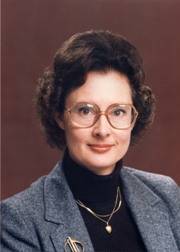
Janine Winton Haines, AM was an Australian politician who was a Senator for South Australia from 1977 to 1978 and again from 1981 to 1990. She represented the Australian Democrats, and served as the party's leader from 1986 to 1990, becoming the first female federal parliamentary leader of an Australian political party. She was pivotal in "shaping the Australian Democrats into a powerful political entity that held the balance of power in the Senate".
This is a list of members of the Australian Senate from 1993 to 1996. Half of the state senators had been elected at the March 1990 election and had terms due to finish on 30 June 1996; the other half of the state senators were elected at the March 1993 election and had terms due to finish on 30 June 1999. The territory senators were elected at the March 1993 election and their terms ended at the next federal election, which was March 1996.
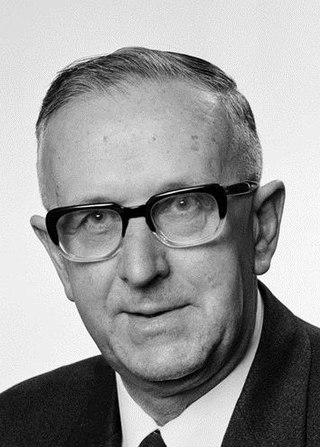
Francis Patrick Vincent McManus, Australian politician, was the last leader of the parliamentary Democratic Labor Party and a prominent figure in Australian politics for 30 years.
Karin Nicole Sowada is an Australian archaeologist and former politician. She served two years as an Australian Democrats senator for New South Wales between 1991 and 1993. In 1998, she was a republican delegate to the Constitutional Convention. From 1996–2005, she was the assistant curator of the Nicholson Museum at the University of Sydney. From 2008–2015, she was Chief Executive Officer of the Anglican Deaconess Institution Sydney.

John Woodley is an ordained Methodist minister and was a Senator representing the state of Queensland, Australia, in the Australian Senate.
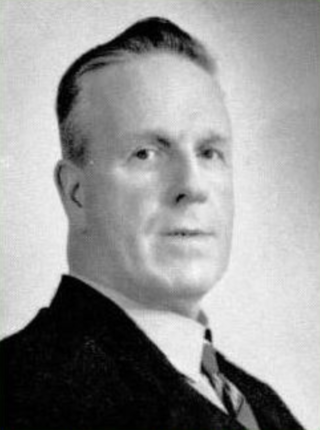
Albert Victor Thompson was a member of the Australian House of Representatives and the South Australian House of Assembly.

Alexander John McLachlan was an Australian politician. He served as a Senator for South Australia from 1926 to 1944, representing the Nationalist Party and United Australia Party. He held ministerial office in the Lyons government as Vice-President of the Executive Council (1932–1934), Minister in charge of Development and Scientific and Industrial Research (1932–1937), and Postmaster-General of Australia (1934–1938).
John Royston Siddons was an Australian politician. He was a businessman and the executive chairman of Siddons Industries Ltd. before entering politics.
John Gordon "Jack" Evans was an Australian businessman and politician who served as an Australian Democrats senator for Western Australia from 1983 to June 1985.

John Owen Critchley was an Australian politician who served as a Labor member of the South Australian House of Assembly from 1930 to 1933 and then the Australian Senate from 1947 to 1959. Born at Callington in the Adelaide Hills of South Australia, and schooled in and around Petersburg, Critchley completed an apprenticeship as a wheelwright, but was then sacked for forming a branch of his union. He was a founding member and also served twelve years on the executive of the Amalgamated Coach Rolling Stock Makers' and Wheelwrights' Society – later the Australian Coachmakers Employees' Federation then the Vehicle Builders Employees' Federation. He briefly served with the 10th Battalion on the Western Front in France and Belgium during World War I, but was repatriated as medically unfit, suffering from a neck condition.
George Roy William McDonald was an Australian politician.

The Tasmanian Nationals are a political party in the Australian state of Tasmania, aligned with the National Party of Australia. The party is not currently registered with the Tasmanian Electoral Commission, and is not separately registered with the Australian Electoral Commission, unlike the other state branches of the Nationals.
References
- ↑ "Psephos - Adam Carr's Election Archive". psephos.adam-carr.net. Retrieved 18 April 2020.
- 1 2 3 4 5 Stock, Jenny Tilby. "COULTER, John Richard (1930– )". The Biographical Dictionary of the Australian Senate. Retrieved 21 December 2022.
- Biography for COULTER, John Richard
- ABC: Coulter responds to Lee's (sic) attack
- ABC: Democrats dismiss Coulter's comments